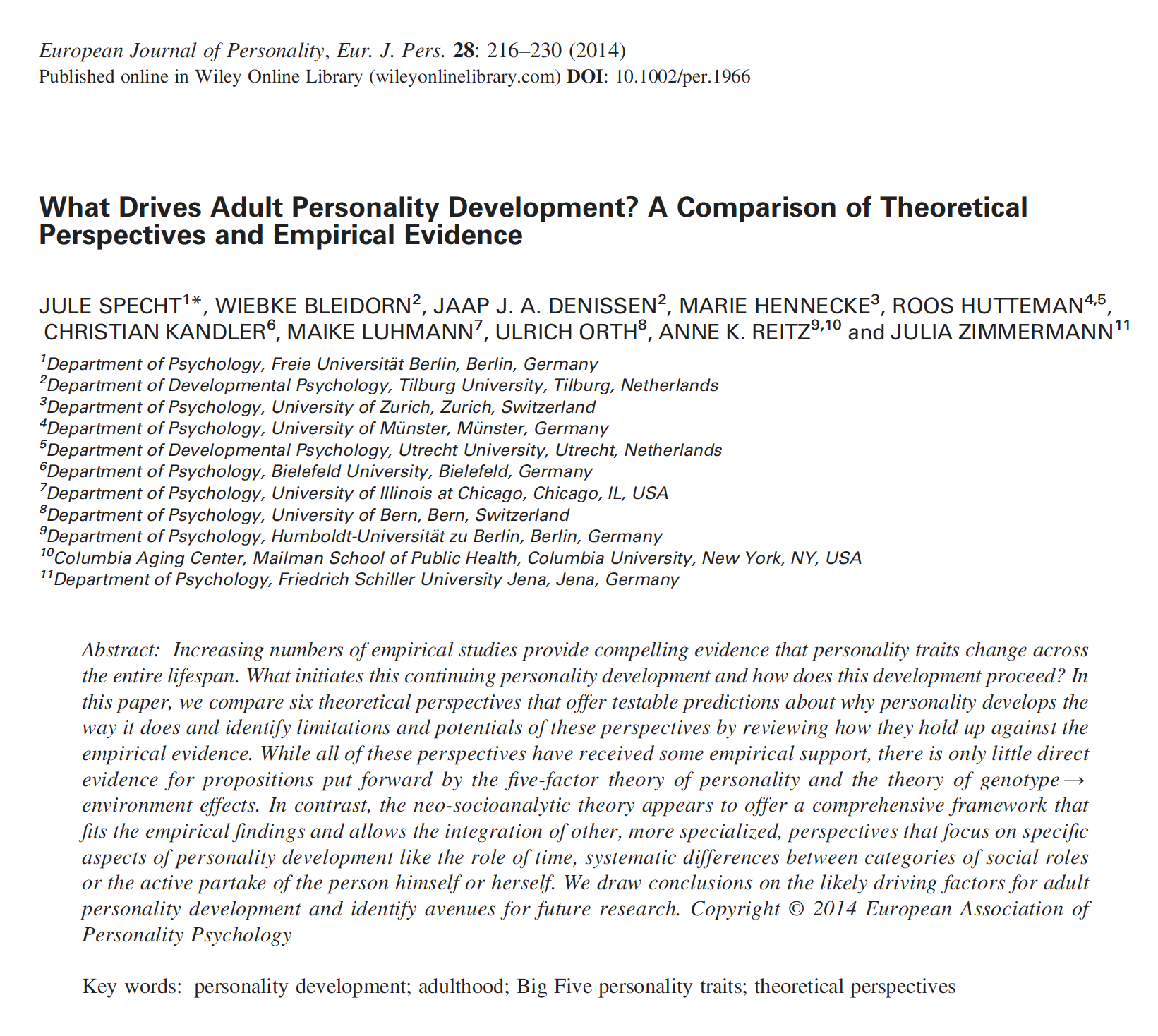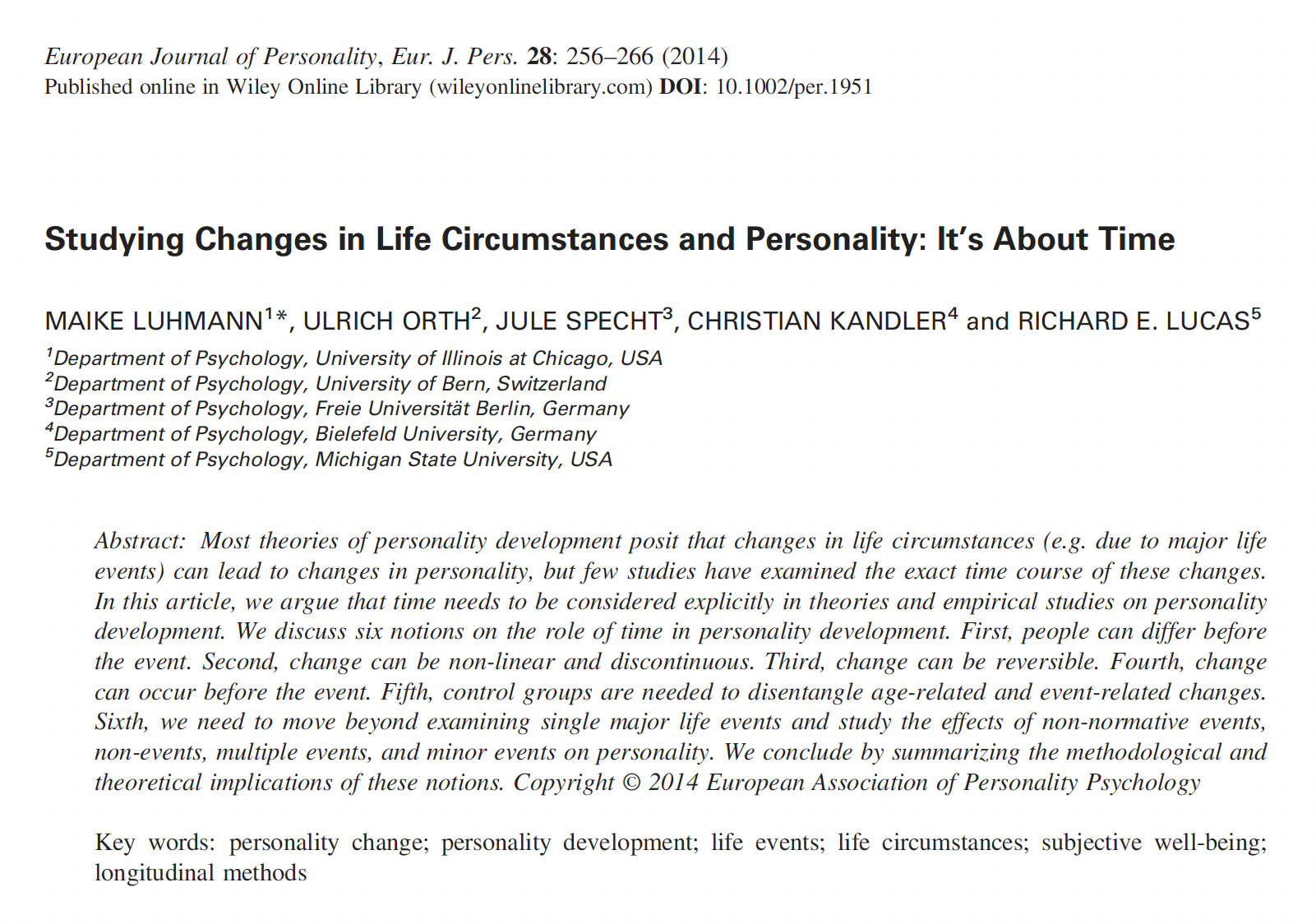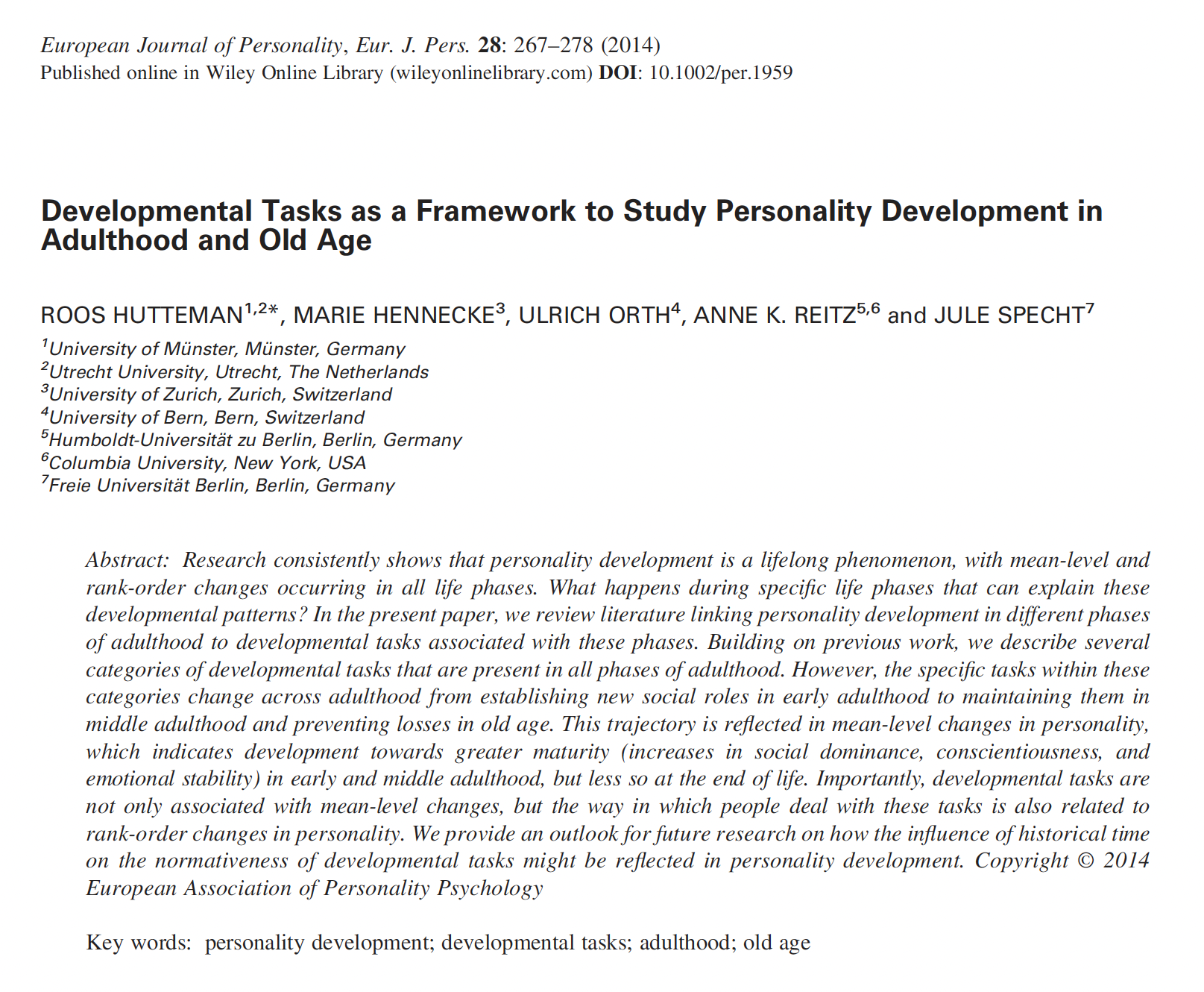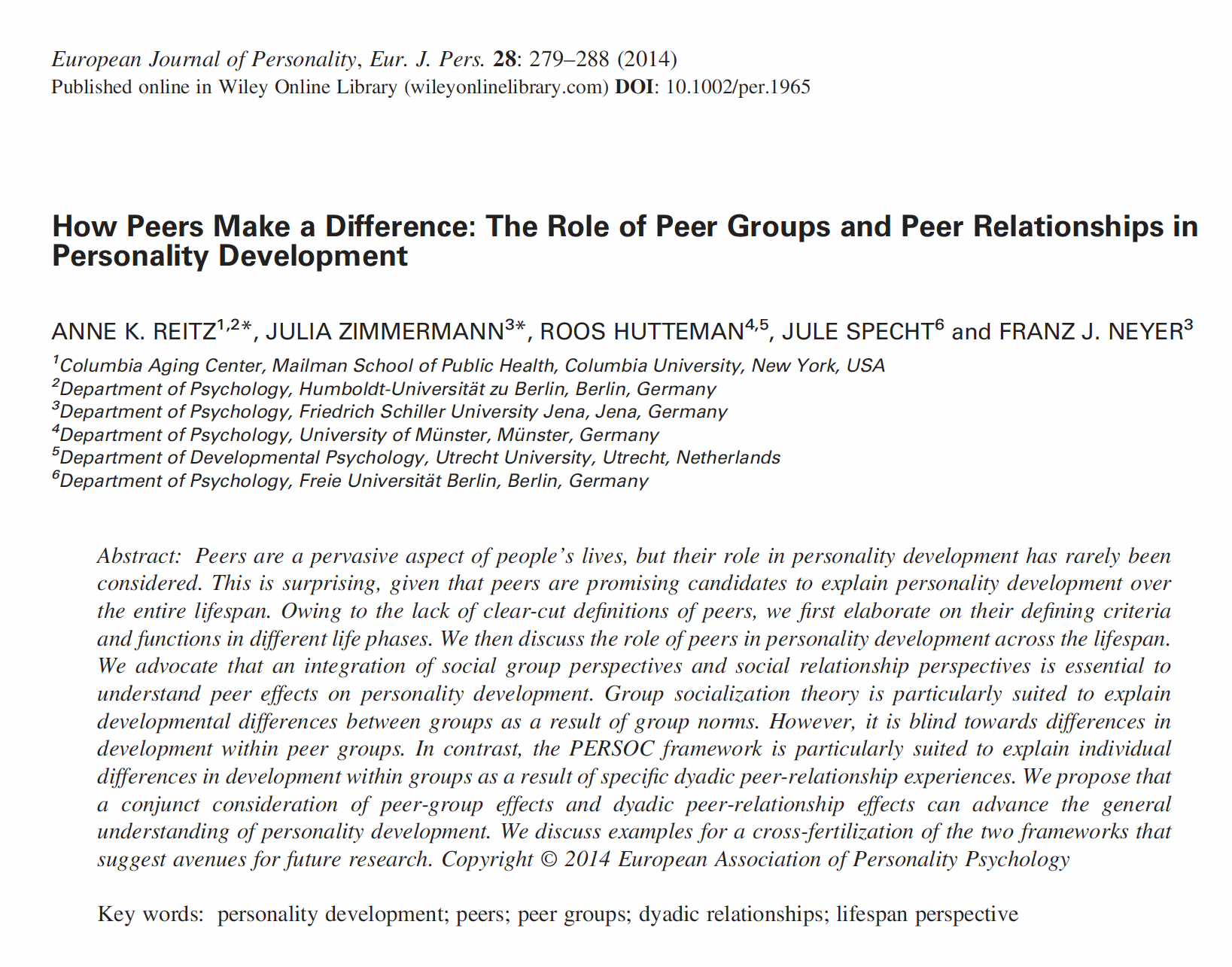what drives adult personality development?
special issue im european journal of personality.
Zusammen mit Wiebke Bleidorn, Jaap Denissen, Marie Hennecke, Roos Hutteman, Christian Kandler, Maike Luhmann, Ulrich Orth, Anne Reitz und Julia Zimmermann habe ich ein Special Issue zum Thema Persönlichkeitsentwicklung im European Journal of Personality veröffentlicht.
Im Folgenden werden die Artikel vorgestellt, an denen ich beteiligt war. Die gesamte Ausgabe kann hier gelesen werden.

What drives adult personality development? A comparison of theoretical perspectives and empirical evidence
Increasing numbers of empirical studies provide compelling evidence that personality traits change across the entire lifespan. What initiates this continuing personality development and how does this development proceed? In this paper, we compare six theoretical perspectives that offer testable predictions about why personality develops the way it does and identify limitations and potentials of these perspectives by reviewing how they hold up against the empirical evidence. While all of these perspectives have received some empirical support, there is only little direct evidence for propositions put forward by the five-factor theory of personality and the theory of genotype→environment effects. In contrast, the neo-socioanalytic theory appears to offer a comprehensive framework that fits the empirical findings and allows the integration of other, more specialized, perspectives that focus on specific aspects of personality development like the role of time, systematic differences between categories of social roles or the active partake of the person himself or herself. We draw conclusions on the likely driving factors for adult personality development and identify avenues for future research.
Link zum Paper:

Studying changes in life circumstances and personality: It’s about time
Most theories of personality development posit that changes in life circumstances (e.g. due to major life events) can lead to changes in personality, but few studies have examined the exact time course of these changes. In this article, we argue that time needs to be considered explicitly in theories and empirical studies on personality development. We discuss six notions on the role of time in personality development. First, people can differ before the event. Second, change can be non-linear and discontinuous. Third, change can be reversible. Fourth, change can occur before the event. Fifth, control groups are needed to disentangle age-related and event-related changes. Sixth, we need to move beyond examining single major life events and study the effects of non-normative events, non-events, multiple events, and minor events on personality. We conclude by summarizing the methodological and theoretical implications of these notions.
Link zum Paper:

Developmental tasks as a framework to study personality development in adulthood and old age
Research consistently shows that personality development is a lifelong phenomenon, with mean-level and rank-order changes occurring in all life phases. What happens during specific life phases that can explain these developmental patterns? In the present paper, we review literature linking personality development in different phases of adulthood to developmental tasks associated with these phases. Building on previous work, we describe several categories of developmental tasks that are present in all phases of adulthood. However, the specific tasks within these categories change across adulthood from establishing new social roles in early adulthood to maintaining them in middle adulthood and preventing losses in old age. This trajectory is reflected in mean-level changes in personality, which indicates development towards greater maturity (increases in social dominance, conscientiousness, and emotional stability) in early and middle adulthood, but less so at the end of life. Importantly, developmental tasks are not only associated with mean-level changes, but the way in which people deal with these tasks is also related to rank-order changes in personality. We provide an outlook for future research on how the influence of historical time on the normativeness of developmental tasks might be reflected in personality development.
Link zum Paper:

How peers make a difference: The role of peer groups and peer relationships in personality development
Peers are a pervasive aspect of people’s lives, but their role in personality development has rarely been considered. This is surprising, given that peers are promising candidates to explain personality development over the entire lifespan. Owing to the lack of clear-cut definitions of peers, we first elaborate on their defining criteria and functions in different life phases. We then discuss the role of peers in personality development across the lifespan. We advocate that an integration of social group perspectives and social relationship perspectives is essential to understand peer effects on personality development. Group socialization theory is particularly suited to explain developmental differences between groups as a result of group norms. However, it is blind towards differences in development within peer groups. In contrast, the PERSOC framework is particularly suited to explain individual differences in development within groups as a result of specific dyadic peer-relationship experiences. We propose that a conjunct consideration of peer-group effects and dyadic peer-relationship effects can advance the general understanding of personality development. We discuss examples for a cross-fertilization of the two frameworks that suggest avenues for future research.
Link zum Paper:
 jule specht.
jule specht.